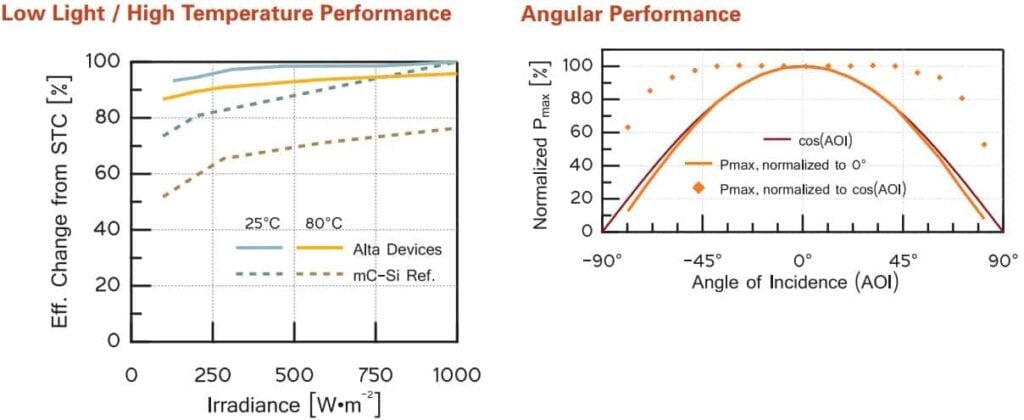This angle is also called the zenith angle dz.
Angle of incidence specs for solar panels.
Solar panels are most efficient when pointing at the sun so engineers want to minimize this angle at all times.
Solar azimuth angle a.
The surface azimuth angle at describes the deviation from the south.
A flat roof has a 0 degree tilt and a vertical wall mount has a 90 degree tilt angle.
Elevation angle and azimuth angle commonly shortened to angle and azimuth for brevity.
Orientation of the panels.
Whether you are installing a solar panel on a flat roof or a pitched roof the output of the solar pv system would be increased by optimizing the tilt angle.
Welcome to another entry in our ongoing solar 101 series.
The array s tilt is the angle in degrees from horizontal.
This is the angle between the line that points to the sun and the angle that points straight out of a pv panel also called the line that is normal to the surface of the panel.
Let s start with two key terms.
However if the panels are turned at an angle greater than 45 compared to true south production begins to decrease significantly.
Angular displacement from south of the projection of beam radiation on the horizontal plane.
Today we re going to explain how to mount your solar panels to get the most energy from them.
At 90 from true south therefore east and west production can drop to 30.
The calculation of the angle of incidence 0tilt on a tilted surface is more complicated.
For the best results solar panels should be oriented towards the south.
This decline is due to the fact that solar panels during most of the day are exposed to weak and not perpendicular sunlight.
This is because the sun is always in the southern half of the sky in the northern hemisphere.
While the angle of your solar panels is important a more important factor in your energy production is going to be the direction your panels face.
The solar angle of incidence 0hor on a horizontal surface is a direct function of the sun height ys.

